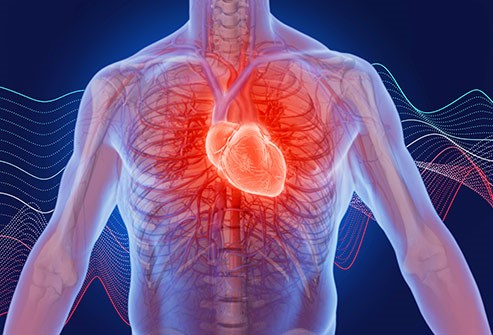What Causes Heart Palpitations?
If you ever feel like your heart is beating too fast or is skipping beats, you could be experiencing heart palpitations.
Heart Palpitations are common and normally not a sign of anything serious. But, like with anything heart-related, it is always worth being seen by a health professional if you experience palpitations.
Bond Radiology can help. If you are experiencing heart palpitations, you should book an appointment today with an experienced health professional to put your mind at rest.
So, what are heart palpitations and what causes them?

Heart palpitations are premature contractions within the heart that cause symptoms like a fluttering or pounding sensation. As the heart is complex with many different moving parts and functions, there are a number of different types of heart palpitations you can experience, some of which are more uncomfortable than others.
Signs that you are having heart palpitations include:
- A pounding heart
- A fluttering sensation in your chest
- A bulging rhythm within your neck
- Chest pain (please remember ALL chest pain must be dealt with as an emergency)
- Pain upon leaning forward
- Irregular heartbeat
- Dizziness
- Fainting
The most common cause of heart palpitations is anxiety and stress. They can also be caused by too much caffeine, vigorous activity, dehydration and low blood sugar. Pregnant women are also more susceptible to experiencing heart palpitations.
If you are experiencing heart palpitations, you may want to consider these factors first and foremost. Simple life alterations can reduce or eliminate the problem.
However, heart palpitations can also be a sign of something more serious including:
- Anaemia
- Thyroid disease
- Fever
- Pericardial disease
- Abnormal heart rhythm
- Heart blockage
- Other common heart diseases
- Serious panic disorders requiring treatment
So, what can you do?
The first step is to rule out anything serious and attempt to pinpoint the cause of the palpitations. If you think they are being caused by common issues like anxiety and stress, then emotional therapies and relaxation can help. If you are pregnant, it is worth mentioning to your antenatal professionals that you are experiencing heart related symptoms. As diet can play a role in the onset of the condition, you may want to keep a food diary and assess how much caffeine and stimulating foods you’re consuming.
It is important to also rule out serious heart conditions. Bond Radiology can help with this.
Using a holter monitor, we can monitor your heartbeat and identify irregularities that may then need to be further investigated. A holter monitor is worn for a 24 hour period under your clothes and will not interfere in your daily life. The results can be hugely insightful and determine the next step of treatment.
It is also possible to have a transthoracic echocardiogram. This is where you are given an ultrasound scan of the heart. This test shows professionals the size of your heart chambers, how effectively your heart is pumping blood and detects the presence of any heart defects. This test is non-invasive, painless and quick. It can be performed as an outpatient appointment.
If you are not sure which test is required to address heart palpitations, you can contact us today to seek the right course of action.
Please remember that heart palpitations are usually nothing to worry about. And making simple life changes such as cutting out caffeine and reducing stress can often solve the issue. However, given how crucial heart health is, it is advisable to seek medical attention to rule out serious heart conditions and remain proactive about your overall health and wellbeing.
To read our comprehensive guide to better heart health, click here.